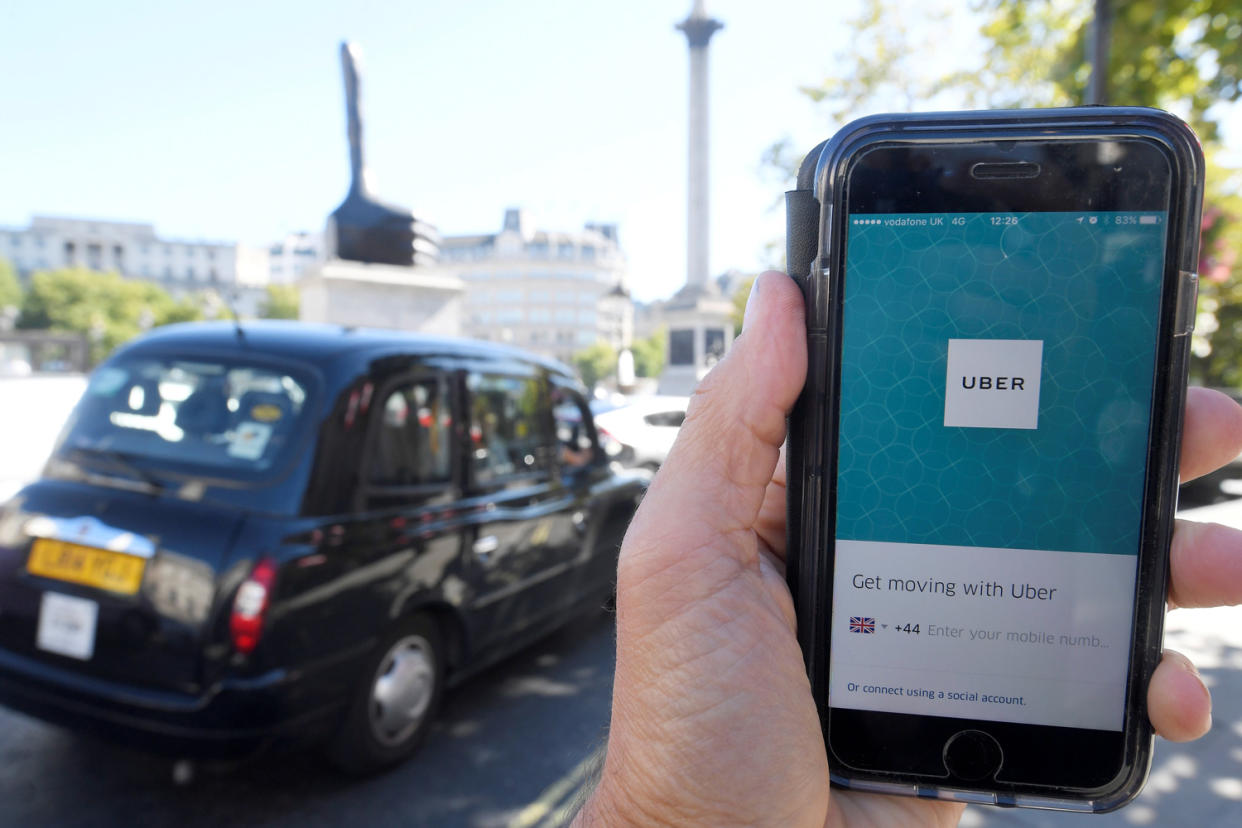Rohan Silva: We need Uber if London is to stay ahead of the curve

“I come to Europe every year — mainly to make sure we’re hiring as few people in Paris as possible.” So said the CEO of one of America’s biggest technology companies when we met for a coffee recently.
The guy wasn’t kidding. His opinion of France was clear: it’s a country where traditional industries can lobby politicians to keep out competition from digital businesses.
That impression — whether true or not — matters. It shapes decisions about where foreign companies choose to invest money and create jobs. After all, no smart entrepreneur would employ people in a country where the system is unfairly stacked against you. That’s what’s so damaging about Transport for London’s decision to ban Uber — it’s so clearly the result of political lobbying from the powerful black cab unions.
After all, in 2015, TfL proposed new regulations designed to force ride-sharing apps out of the market, and so protect black cabs and minicab companies. For example, TfL wanted to make users wait for five minutes after ordering a taxi via an app, even if one was just around the corner, and they also proposed a ban on taxi apps showing users the location of available cabs. Those rules would have killed innovation at a stroke — exactly what they were designed to do.
For global investors, that’s what’s scary — the fact that TfL has repeatedly tried to use regulation to keep out technology that’s made it cheaper for Londoners to get around. I understand why TfL is acting like this — it’s not easy to stick up for disruptive new entrants against London’s taxi unions, especially when black cabs are such a big part of the city.
But even if it’s hard, our regulators should be on the side of the public. In the past 30 years, London’s population has grown by two million — but we’ve had only 3,500 more black cabs, which is why ride-hailing apps have made such a difference.
With Uber CEO Dara Khosrowshahi in London today meeting TfL, the regulators need to understand that banning the service isn’t just bad for Londoners, it’s bad for the economy as a whole. Right now, global investors and entrepreneurs are looking at London and saying: “Wow, they’re actually the same as Paris these days.”
That perception will mean fewer jobs and less global investment in London. Exactly what we don’t need — especially with Brexit ahead.
Reverse mentors are helping to close tech’s diversity gap
Ten years ago, I was working in Parliament, and something used to really bother me. It was the fact that every youngster who did work experience around me was posh — there was no real diversity of backgrounds.
This wasn’t because of discrimination — most teenagers simply had no idea they could even apply to do work experience with us.
So in the end I got in touch with the Social Mobility Foundation, and we started getting kids from poorer backgrounds in every summer.
That diversity made a big difference — which is why it was great to see London entrepreneur Grace Gould, 28, making headlines recently for hiring 54-year-old creative director Jackie Annesley as one of the first employees in her tech start-up, Soda. That’s a very different age profile to the typical digital worker — and I’ve no doubt there’ll be fresh perspectives and better insights as a result.
I hope more entrepreneurs follow suit — whether hiring bright young apprentices (like we do at Second Home), or older employees like Grace has done. It’s a real win-win.
Add Eugenides to your reading list
If you read one book this autumn, make sure it’s Jeffrey Eugenides’ brilliant new collection of short stories, Fresh Complaint.
Eugenides is one of those authors who seems to be able to predict the future. Back in 2003, he won the Pulitzer Prize for Fiction for his novel Middlesex, which is about an intersex child — anticipating the big debates today about gender fluidity and identity.
And in his short stories, Eugenides does the most incredible job of putting the reader in the shoes of pensioners, depressed middle-aged men and students. The topics he covers — from transgender teenagers, through to rape allegations on campus — couldn’t be more 2017. Perfect reading as the winter nights start drawing in.
Please don’t stop the music
Four in 10 of London’s music venues have closed in recent years, making the city a less attractive and fun place — so it’s always nice to be able to celebrate a rare good news story.
This weekend’s Hackney Wonderland music festival is one of those — with live performances spread across east London.
Good on Hackney council for allowing the event to happen — and let’s hope lots of Evening Standard readers will be out in force. I know I will.

 Yahoo News
Yahoo News 
